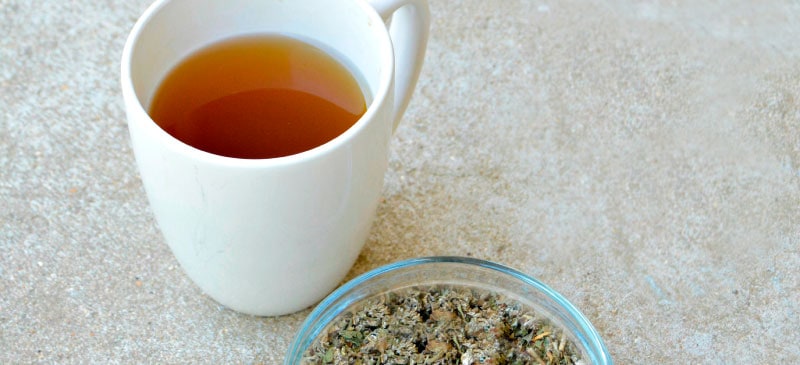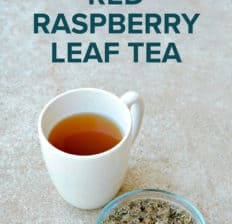This Dr. Axe content is medically reviewed or fact checked to ensure factually accurate information.
With strict editorial sourcing guidelines, we only link to academic research institutions, reputable media sites and, when research is available, medically peer-reviewed studies. Note that the numbers in parentheses (1, 2, etc.) are clickable links to these studies.
The information in our articles is NOT intended to replace a one-on-one relationship with a qualified health care professional and is not intended as medical advice.
This article is based on scientific evidence, written by experts and fact checked by our trained editorial staff. Note that the numbers in parentheses (1, 2, etc.) are clickable links to medically peer-reviewed studies.
Our team includes licensed nutritionists and dietitians, certified health education specialists, as well as certified strength and conditioning specialists, personal trainers and corrective exercise specialists. Our team aims to be not only thorough with its research, but also objective and unbiased.
The information in our articles is NOT intended to replace a one-on-one relationship with a qualified health care professional and is not intended as medical advice.
Exploring the Benefits and Uses of Red Raspberry Leaf Tea
June 17, 2023

The red raspberry leaf tea plant is a timeless elixir that has been cherished for centuries, celebrated for its unique properties and gentle, nurturing effects, especially for women. Its use during pregnancy and menstruation makes it one of the most popular holistic teas out there.
While red raspberry leaf tea is widely known for its association with women’s health, its benefits do extend beyond this realm. The tea is known as a tonic for overall vitality, and it’s used in traditional medicine to relieve digestive complaints and more with its antioxidant properties.
What Is Red Raspberry Leaf Tea?
Red raspberry leaf tea is an herbal tea made from the leaves of the red raspberry plant, scientifically known as Rubus idaeus. The red raspberry plant is native to Europe and Asia but is now widely cultivated in many parts of the world.
Red raspberry leaf tea has been used for centuries as a traditional remedy for various health purposes, particularly for women’s reproductive health. The tea is rich in vitamins, minerals and plant compounds, including tannins and flavonoids. It’s known for its high content of vitamin C, vitamin E, vitamin A, calcium, iron, potassium and magnesium.
Often associated with pregnancy and childbirth, red raspberry leaf tea is believed to help with toning the uterus, strengthening the pelvic muscles and promoting smoother labor. Some women drink red raspberry leaf tea in the later stages of pregnancy to help prepare their bodies for childbirth.
Additionally, red raspberry leaf tea is consumed for several other potential health benefits. It’s used as a mild tonic for supporting overall well-being, promoting healthy digestion and alleviating menstrual discomfort. The tea is also used for its potential antioxidant and anti-inflammatory properties.
Nutrition Facts
As an herbal tea, red raspberry leaf contains a variety of vitamins, minerals and plant compounds that contribute to its potential health benefits. The exact nutritional composition of the tea varies depending on the specific brand and preparation method.
Here are some general nutritional facts about red raspberry leaf tea:
- Vitamins: Red raspberry leaf tea is known to be a good source of various vitamins, including vitamin C, vitamin E and vitamin A. These vitamins are essential for maintaining overall health and supporting the immune system.
- Minerals: The tea also contains several minerals, including calcium, iron, potassium and magnesium. Calcium is important for bone health, while iron is necessary for the production of red blood cells. Potassium and magnesium are electrolytes that help maintain proper fluid balance and support nerve and muscle function.
- Plant compounds: Red raspberry leaf tea is rich in plant compounds, like tannins, flavonoids and ellagic acid. Tannins are responsible for the tea’s astringent taste and have potential antioxidant and anti-inflammatory properties. Flavonoids are known for their antioxidant effects, which can help protect cells from damage caused by free radicals. Ellagic acid is a naturally occurring polyphenolic compound found in various fruits, nuts and vegetables that’s known for its antioxidant properties and potential anticancer effects.
Benefits/Uses
Red raspberry leaf tea has been used for centuries as a natural remedy for various health conditions, particularly in traditional medicine. While scientific research on the specific benefits of red raspberry leaf tea is limited, it is believed to offer several potential advantages.
1. Pregnancy Support
Red raspberry leaf tea is often consumed by pregnant women due to its historical use as a uterine tonic. One survey conducted in Australia found that 38% of the 121 women surveyed used red raspberry leaf tea during pregnancy.
It is believed to help tone the muscles of the uterus, potentially assisting with more efficient contractions during labor. However, scientific evidence supporting its effectiveness is limited, and more human studies are needed to determine its safety and efficacy.
2. Menstrual Health
The tea is sometimes used to alleviate menstrual discomfort and regulate menstrual cycles. It may help reduce heavy menstrual bleeding, cramping and spasms, but more scientific research is needed to confirm these potential effects.
3. Digestive Health
Red raspberry leaf tea is thought to have a soothing effect on the digestive system. It may help relieve symptoms of indigestion, diarrhea and gastrointestinal distress.
However, more research is needed to understand its mechanisms and efficacy for digestion.
4. Antioxidant Properties
Like the fruit itself, red raspberry leaf tea contains antioxidants that can help protect the body against oxidative stress and damage caused by free radicals.
5. Nutritional Support
Red raspberry leaf tea is a source of vitamins and minerals, including vitamins C and E, calcium, and iron. It can contribute to overall nutrient intake, although the amounts may be relatively small depending on the tea quality and preparation.
How to Use/Dosage
Red raspberry leaf tea is typically brewed by steeping the dried leaves in hot water for a few minutes. It has a mild, slightly sweet flavor and can be enjoyed on its own or mixed with other herbs for added taste.
You can find it in loose leaf form or in tea bags from health food stores, herbal shops or online retailers. If you have access to an organic red raspberry plant, you can gather the leaves yourself and use them to make tea.
How to Make Red Raspberry Leaf Tea
- To prepare the tea, bring water to a boil in a kettle or saucepan, and use approximately 1 tablespoon of dried red raspberry leaves for every 8 ounces (240 ml) of water.
- Pour the boiling water over the leaves, cover them and let the tea steep for about 5 to 10 minutes.
- Adjust the steeping time based on your preference for a stronger or milder flavor.
Strain the tea to separate the liquid from the leaves, and if desired, sweeten it with honey or add lemon. The tea can be served hot, or chill it in the refrigerator to make a refreshing iced tea.
The recommended dosage and frequency of red raspberry leaf tea consumption can vary. It’s best to follow the instructions on the package or consult with a health care professional for guidance, particularly if you are using it for specific health purposes, like pregnancy support.
Risks, Side Effects and Interactions
Red raspberry leaf tea is generally considered safe for most people when consumed in moderate amounts. However, there are a few considerations regarding potential risks and side effects:
- Pregnancy complications: While red raspberry leaf tea is often used during pregnancy to support uterine health, it’s important to note that its safety and effectiveness for this purpose are not definitively established through scientific research. Some health care providers recommend avoiding red raspberry leaf tea in the first trimester due to its potential stimulatory effects on the uterus. Consult your health care provider before using red raspberry leaf tea during pregnancy to ensure it is appropriate for your specific situation.
- Contractions and preterm labor: Due to its historical association with uterine toning, there is a theoretical concern that consuming large amounts of red raspberry leaf tea may stimulate contractions and potentially lead to preterm labor. However, scientific evidence supporting this claim is limited.
- Allergic reactions: Some individuals may be allergic to red raspberry leaf tea or other components of the plant. If you experience any allergic symptoms — like rash, itching, swelling or difficulty breathing — after consuming the tea, discontinue its use, and seek medical attention.
- Gastrointestinal upset: In rare cases, red raspberry leaf tea may cause gastrointestinal discomfort, including symptoms such as nausea, diarrhea or stomach cramps. If you experience any of these symptoms, reduce or discontinue its use.
- Interactions with medications: Red raspberry leaf tea may interact with certain medications, including those used to regulate blood sugar levels or blood pressure. If you are taking any medications, consult your health care provider to determine whether red raspberry leaf tea is safe for you and whether any potential interactions may occur.
As with any herbal remedy or supplement, it’s advisable to use red raspberry leaf tea in moderation and consult with a health care professional if you have any specific health concerns or conditions. Doctors can provide personalized advice based on your individual circumstances.
Conclusion
- Red raspberry leaf tea offers potential benefits for pregnancy support, menstrual health, digestive health and as an antioxidant.
- The potential benefits of red raspberry leaf tea include uterine toning, alleviation of menstrual discomfort, soothing of the digestive system and antioxidant protection.
- Caution is advised regarding dosage of this tea because of potential risks during pregnancy, allergies, gastrointestinal upset and interactions with medications.
- Consulting with health care professionals is recommended for personalized advice before using red raspberry leaf tea, especially during pregnancy.


